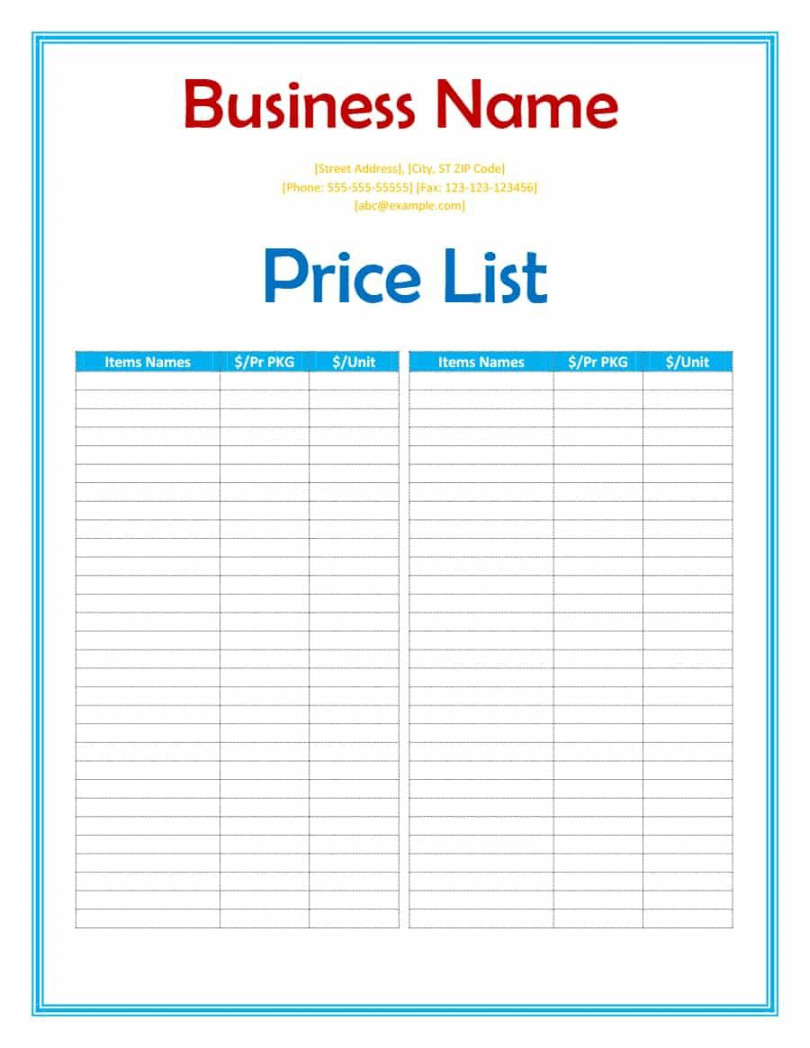A well-crafted Rate card Template is an essential tool for businesses to communicate their pricing structure to clients clearly and professionally. By using Microsoft Word, you can create a visually appealing and informative document that reflects your brand identity. This guide will walk you through the steps involved in designing an effective Rate Card Template.
1. Define Your Brand Identity
Before you begin designing your Rate Card Template, it’s crucial to define your brand identity. This includes your brand’s color palette, typography, and overall aesthetic. Consistency in these elements will create a cohesive and professional look.

Image Source: pinimg.com
2. Choose a Clean and Professional Layout
A clean and uncluttered layout is essential for a professional Rate Card Template. Consider using a two-column layout to organize information effectively. The left column can be used for headings and descriptions, while the right column can display pricing details.
3. Utilize High-Quality Typography
The typography you choose can significantly impact the readability and overall impression of your Rate Card Template. Opt for fonts that are easy to read and visually appealing. Avoid using too many different fonts, as this can make the document look cluttered.
4. Incorporate Visual Elements
While minimalism is key, incorporating subtle visual elements can enhance the overall design. Consider using:
Headings and Subheadings: Use clear and concise headings to organize information.
5. Highlight Your Unique Selling Points
Your Rate Card Template is an opportunity to showcase your unique selling points. Highlight what sets your business apart from competitors. This could be your expertise, experience, or special offers.
6. Use a Consistent Color Palette
A consistent color palette will create a unified look and feel. Choose colors that complement your brand identity and enhance readability. Avoid using too many colors, as this can be overwhelming.
7. Proofread Carefully
Proofreading is a crucial step in creating a professional Rate Card Template. Ensure that there are no typos, grammatical errors, or inconsistencies. A well-proofread document will reflect your attention to detail and professionalism.
8. Consider Your Target Audience
When designing your Rate Card Template, keep your target audience in mind. Tailor the language and content to their specific needs and interests. Use clear and concise language that is easy to understand.
9. Provide Clear and Concise Information
Your Rate Card Template should be easy to understand. Avoid using jargon or technical terms that may confuse your clients. Clearly outline your services, pricing packages, and any additional fees or terms and conditions.
10. Include a Call to Action
Your Rate Card Template should encourage clients to take action. Include a clear call to action, such as “Contact Us for a Quote” or “Book Your Consultation Today.”
Conclusion
By following these guidelines, you can create a professional Rate Card Template that effectively communicates your pricing structure and leaves a positive impression on your clients. Remember, a well-designed Rate Card Template is an investment in your business’s reputation.